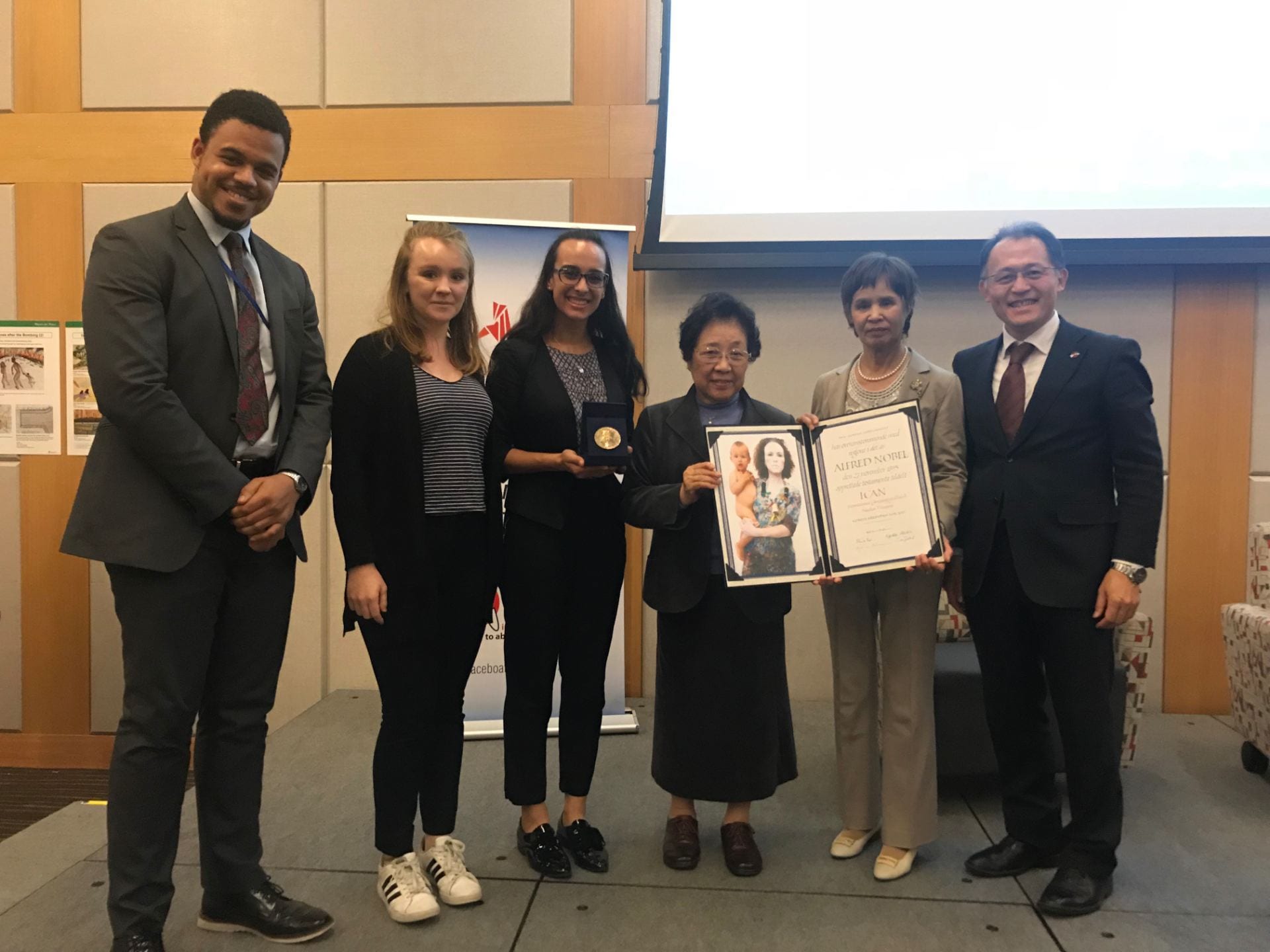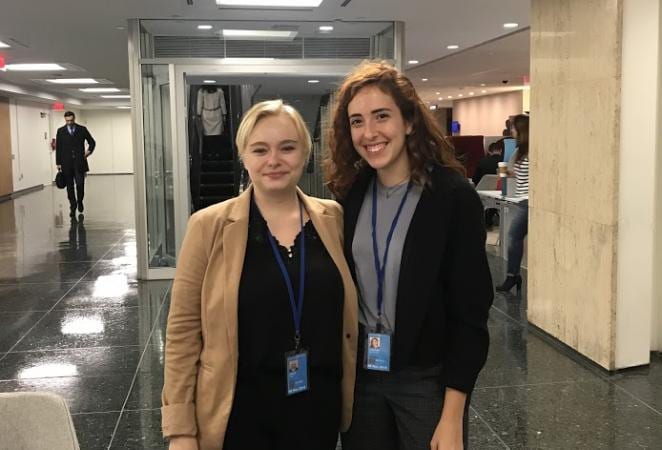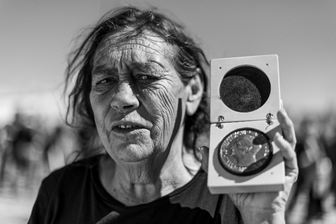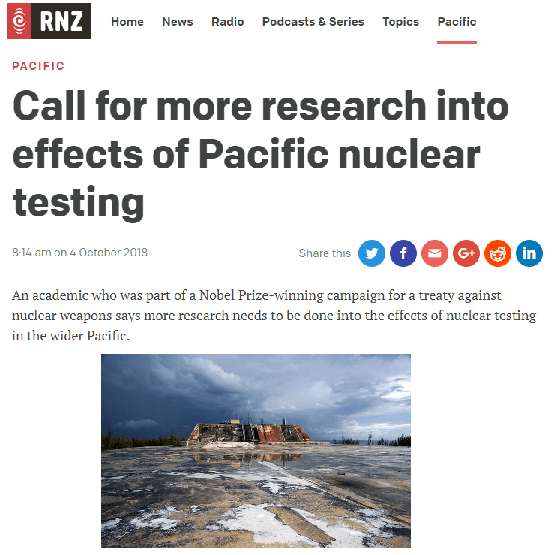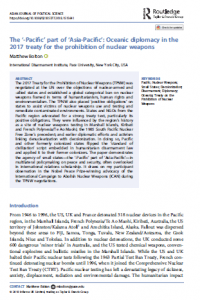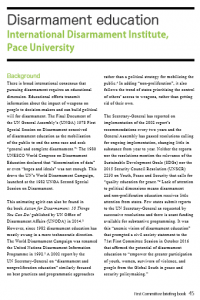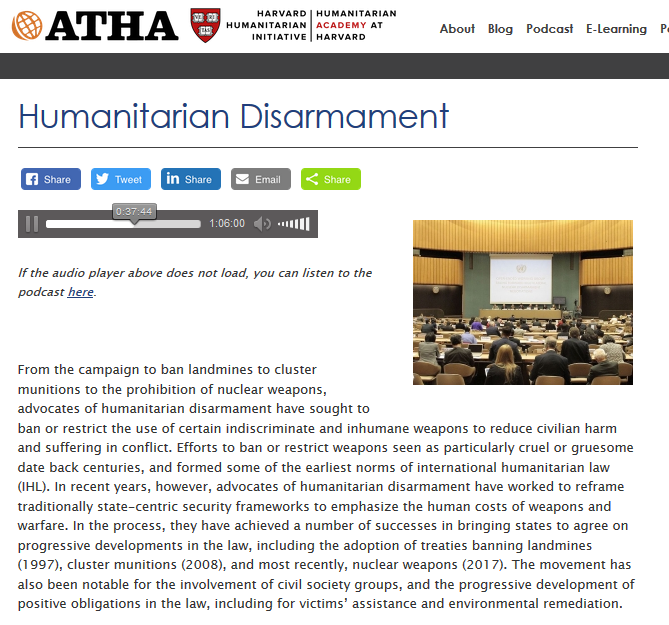
Pace University Katherrine Ketterer ’20 did her service learning assignment with Control Arms during the 2018 UN General Assembly First Committee (Disarmament and International Security).
The following reflection is from Katherine Ketterer ’20, a Pace University undergraduate who participated in the POL297L Global Politics of Disarmament and Arms Control class in Fall 2018. Students were given with service learning assignments with disarmament advocacy organizations working in and around the UN General Assembly First Committee (International Security and Disarmament). For more on the class, click here.
Even though I am a head delegate of Pace’s New York City Model UN program, I have always felt the United Nations was an elusive thing. I learned about the people who work there, how they are supposed to speak and act, along with their policy. But I never really understood what exactly went on during the meetings.
Now I have a much better idea. During the UN General Assembly First Committee this October and November, I worked with Control Arms, an NGO coalition that works to curb the negative impact of the conventional arms trade. Taking notes, I had the opportunity to hear the concerns and opinions from almost every country in the world, and compile them together for analysis. Pretty cool!

